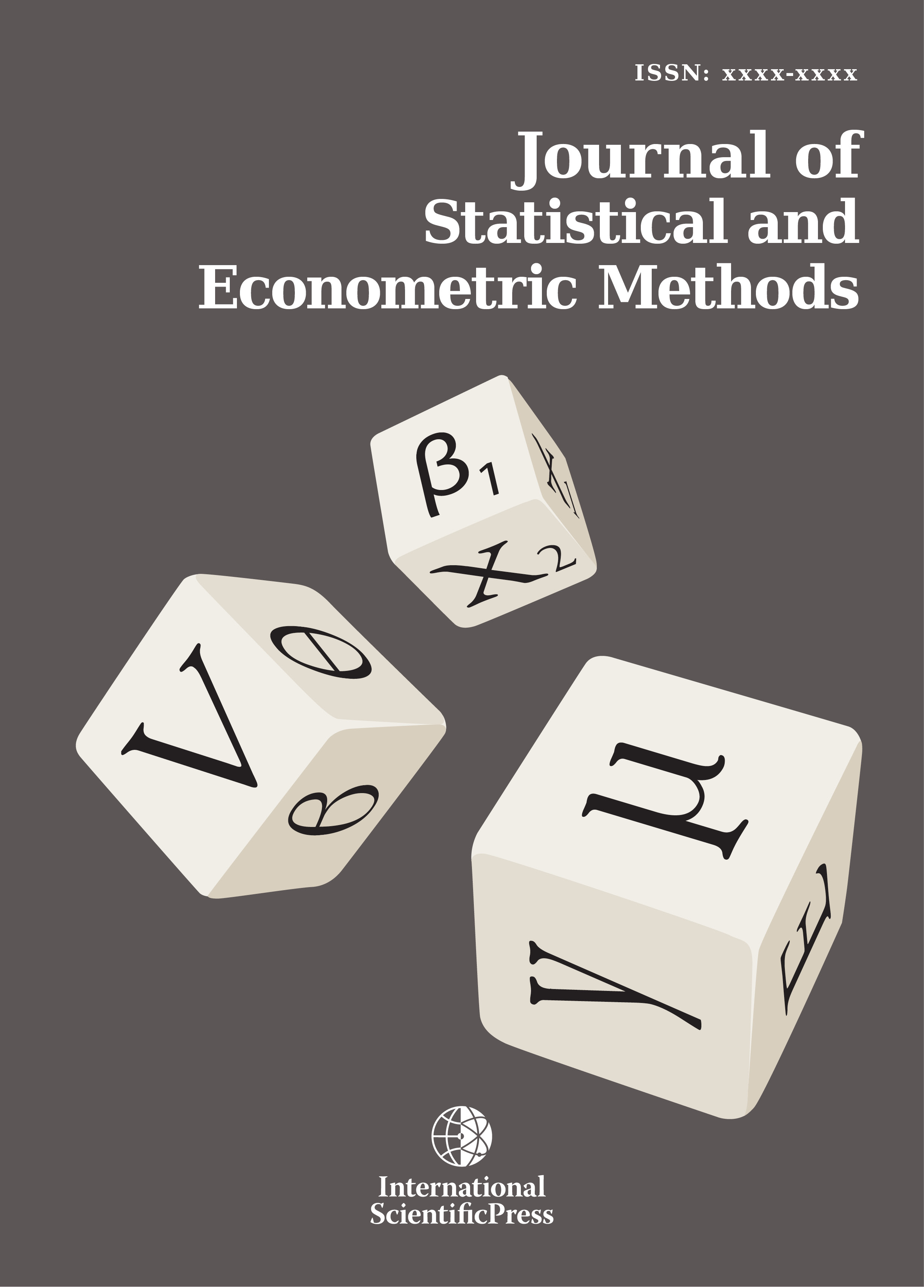Journal of Statistical and Econometric Methods
Efficient Point Estimation of the Sharpe Ratio
-
 [ Download ]
[ Download ]
- Times downloaded: 11087
Abstract
The Sharpe Ratio is defined as the mean excess return over the standard deviation of the excess returns for a given security market portfolio. Due in part to the dynamic nature of this measure and because of statistical issues, the sample estimation of this ratio is challenging and subject to substantial sampling error. As such, the purpose of this research was to develop and test an efficient point estimator of the Sharpe Ratio utilizing an approach that sought to explicitly reduce its associated sampling error through the minimization of the coefficient of variation (CV) and Mean Squared Error (MSE). An empirical simulation study was conducted to assess the potential gains of the novel method given stochastic variations present within time series of security price data, with results offering improvements across all specifications of sample sizes and population standard deviations. Overall, this work addressed a major limitation in the existing point estimate calculation of the Sharpe Ratio, particularly involving estimation error which is present even within large data sets.
